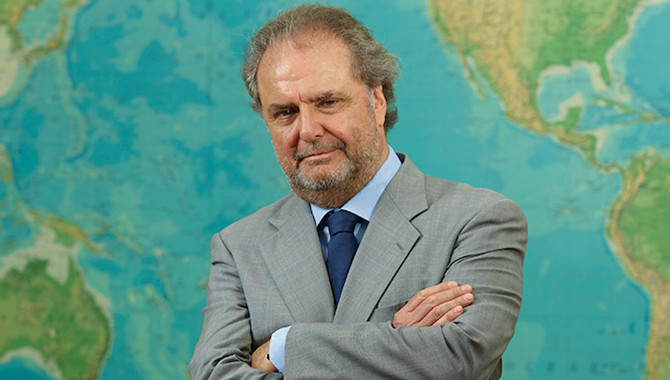
INTERTANKO has offered its support to a recent proposal which advocates the inclusion of charterers as responsible parties in the EU's Emissions Trading Scheme (ETS).
MEP Peter Liese issued a draft report on the EU ETS, which proposes that the commercial operator of a ship should be the final entity responsible for the payment of the EU ETS, not the shipowner.
A major challenge foreseen by INTERTANKO in the application of the EU ETS to shipping is assigning legal responsibility to the ‘shipping company’. Expanding the definition of a shipping company, as proposed by Liese, to include the ‘time charterer’, ensures that those responsible for, and benefiting from, the transportation of the cargo are also responsible for the emissions.
Paolo d'Amico, chairman of INTERTANKO, said: “The proposed amendments to the EU ETS are a step in the right direction and support the principle that the commercial entity responsible for transportation at sea should also be responsible for meeting the obligations under the EU ETS. It is good that the intention of the Commission is now being taken further by incorporating the principle into regulation and making the charterers' responsibilities clearer.”
Liese's report included 114 amendments to the EU ETS, among them a new article on ‘contractual arrangements’ aiming to ensure the final responsibility of the commercial operator by establishing a contractual requirement between the shipowner and commercial operator to pass on the costs.
Mr d'Amico added: “The question is whether the proposed amendment would define contractual arrangements between the tanker owner and the charterer tightly enough to give reassurance in the case of charter party disputes or when changing standard industry clauses.”
In another amendment, Mr Liese proposed a new article suggesting the establishment of an Ocean Fund through revenues generated by the EU ETS, with the aim of improving the energy efficiency of ships and supporting investment aimed at facilitating the decarbonisation of maritime transport. He envisages a dedicated fund to support climate neutrality innovations in shipping, adding the justification that under the MRV regulation the Parliament called for a dedicated ‘Ocean Fund’ to support innovation in the shipping industry.
Dragos Rauta, INTERTANKO's Technical Director commented: “There is no reason to transfer funds to other sectors, as shipping is the most environmentally friendly mode of transport and modal shift from shipping to other modes of transport should be avoided.”
INTERTANKO Members support achieving the goal of net zero CO2 emissions by 2050 but their commitment needs to be supported by the existence of technologies and carbon-free fuels/sources of energy. Therefore, INTERTANKO is of the view that funds collected from ships must be directed to efforts to decarbonise shipping, with clear obligations on all other stakeholders, including Member States, to provide and promote alternative fuels/solutions.
“Shipping companies are not technology designers or alternative fuel manufacturers. Shipping companies contribute by testing technologies and testing new (carbon-free) fuels. The decarbonisation of shipping is therefore dependent on the existence of solutions (technologies and fuels) to achieve the targets. The lack of legal obligations on the ‘supply’ side to develop such solutions is a major hindrance,” added Mr Rauta.
As stated by the European Commission in its Fit for 55 proposals, given the international dimension of shipping, a global approach to reducing greenhouse gases is preferable. INTERTANKO's Members fully agree with this, both for the sake of a level playing field on an international stage and to reach the GHG emission cuts needed. The end goal must be an agreement at International Maritime Organisation level, with the foreseen EU legislation as a temporary measure until an international measure is in place. The EU legislation should therefore be shaped with a forthcoming IMO agreement in mind, being both scalable and flexible.
Source:
Hong Kong Maritime Hub
The opinions expressed herein are the author's and not necessarily those of The Xinde Marine News.
Please Contact Us at:
media@xindemarine.com


 Ningbo Containerized Freight Index Weekly Commentar
Ningbo Containerized Freight Index Weekly Commentar  Ningbo Containerized Freight Index Weekly Commentar
Ningbo Containerized Freight Index Weekly Commentar  Ningbo Containerized Freight Index Weekly Commentar
Ningbo Containerized Freight Index Weekly Commentar  BIMCO Shipping Number of the Week: Bulker newbuildi
BIMCO Shipping Number of the Week: Bulker newbuildi  Ningbo Containerized Freight Index Weekly Commentar
Ningbo Containerized Freight Index Weekly Commentar  Ningbo Containerized Freight Index Weekly Commentar
Ningbo Containerized Freight Index Weekly Commentar